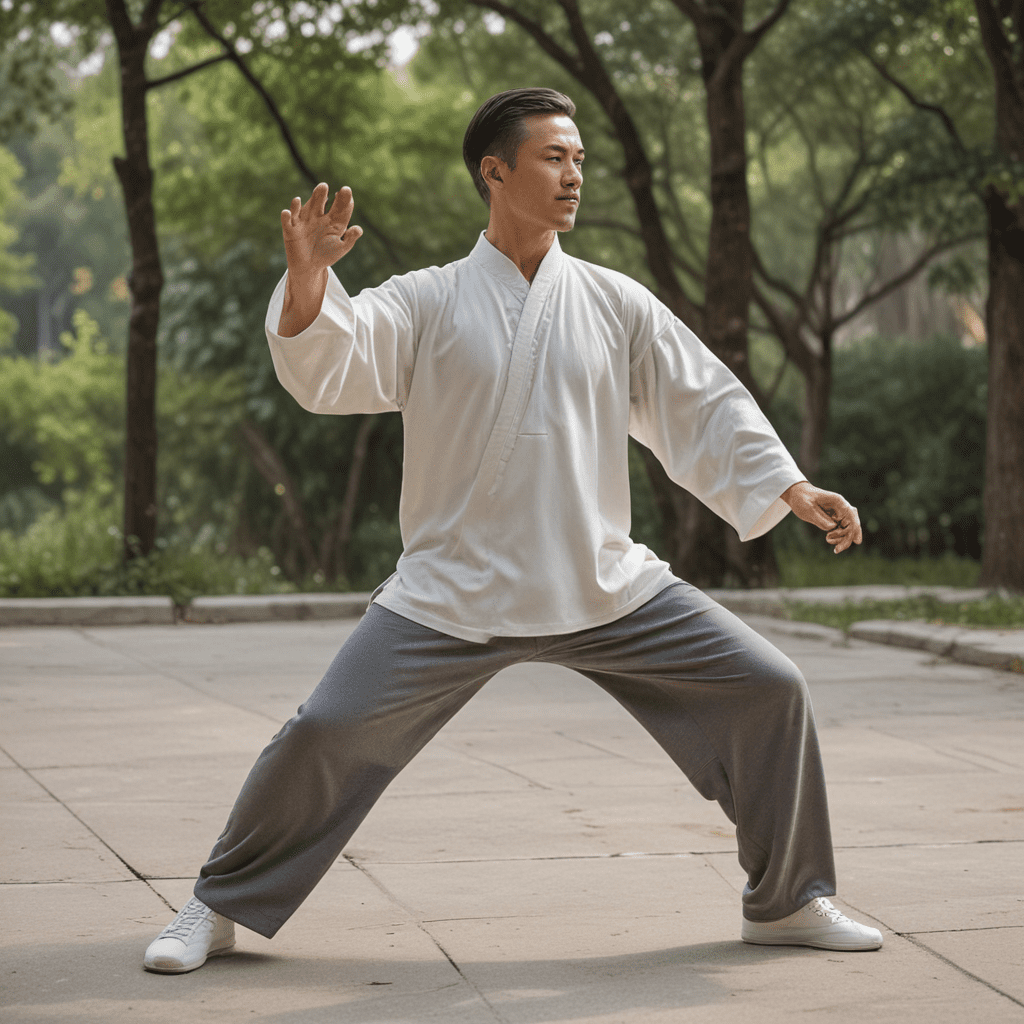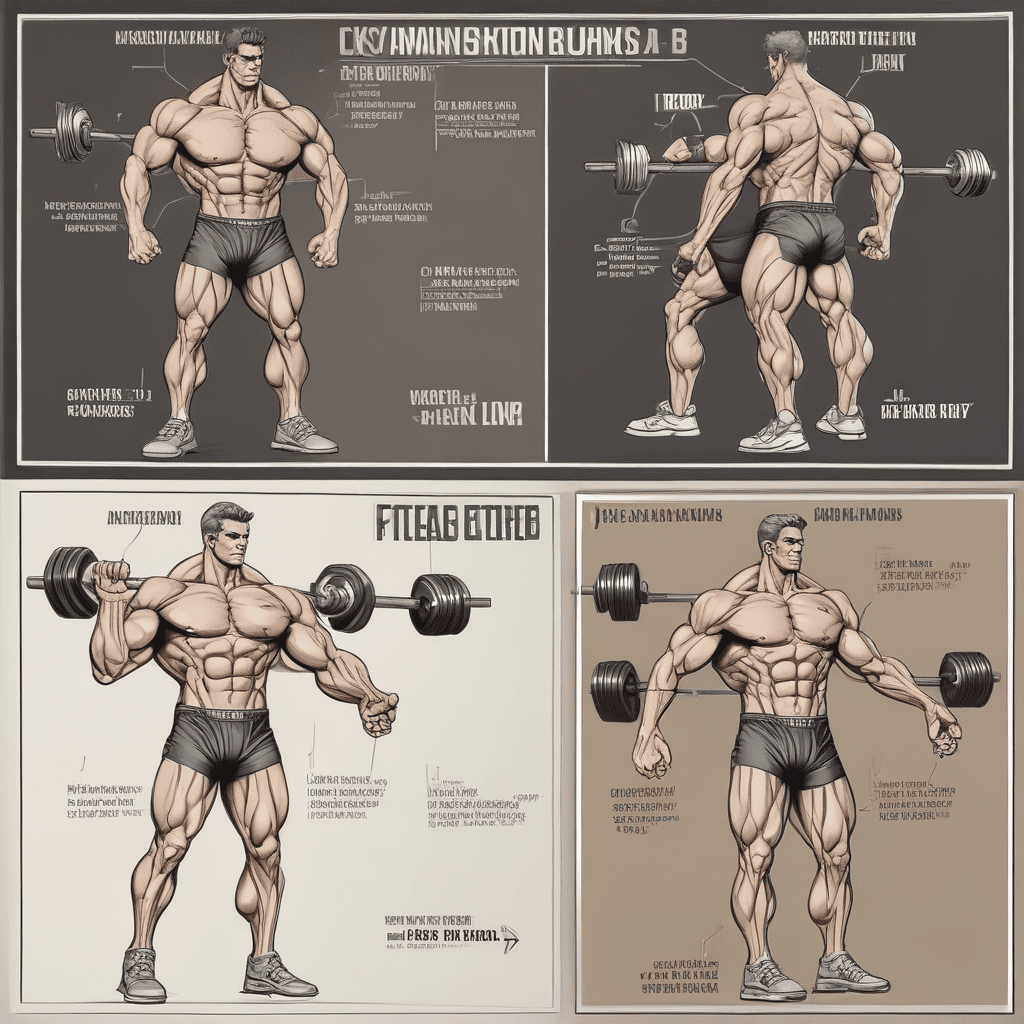
1. Introduction
Are you overwhelmed by daily stressors and seeking mind-body balance? Tai Chi, an ancient Chinese practice that combines gentle movements with deep breathing, offers a powerful solution. As a low-impact exercise, Tai Chi has garnered scientific recognition for its numerous benefits, particularly in stress reduction and promoting mind-body harmony.
2. The Principles of Tai Chi
Tai Chi's essence lies in its guiding principles: mindfulness, relaxation, and flow. Practiced with a graceful and deliberate approach, the movements promote a sense of inner stillness and connection to the present moment. By cultivating relaxation and reducing muscle tension, Tai Chi helps release built-up stress and fosters a state of tranquility.
3. The Physical Benefits of Tai Chi
Tai Chi's gentle but effective movements engage various muscle groups, improving strength, flexibility, and balance. It can alleviate common physical ailments such as joint pain, backache, and arthritis. Additionally, practicing Tai Chi boosts cardiovascular health and enhances coordination, contributing to overall physical well-being.
4. The Mental Benefits of Tai Chi
Beyond its physical benefits, Tai Chi profoundly impacts mental health. It promotes relaxation, reduces anxiety, and improves mood. By focusing on breathing and mindful movement, Tai Chi cultivates a sense of calmness and clarity. Engaging in this practice regularly helps strengthen cognitive function, improve memory, and enhance overall emotional well-being.
5. Tai Chi and Stress Relief
Stress is a prevalent issue in modern life, and Tai Chi offers an effective antidote. Its slow, controlled movements allow the body to release tension and enter a state of deep relaxation. By calming the nervous system and reducing stress hormones, Tai Chi helps cope with stress and its negative effects on physical and mental health.
6. Tai Chi and Mind-Body Balance
Tai Chi is not merely an exercise; it's a mind-body practice that emphasizes the connection between the physical and mental realms. By integrating gentle movements with mindful breathing techniques, Tai Chi cultivates a sense of balance and harmony within the body and mind. By promoting flexibility and relaxation, it helps release physical tension that can often manifest as mental stress, creating a holistic approach to well-being.
7. Getting Started with Tai Chi
Embarking on a Tai Chi journey is accessible to individuals of all ages and fitness levels. Finding a qualified instructor is crucial to ensure proper guidance and technique. Tai Chi classes typically involve slow, repetitive movements accompanied by mindful breathing, allowing beginners to grasp the fundamentals effortlessly. With regular practice, one can gradually progress to more advanced forms, deepening their mind-body connection.
8. Finding a Tai Chi Teacher
Choosing the right Tai Chi teacher is paramount for a fulfilling and effective practice. Seek recommendations from friends or healthcare professionals. Look for instructors certified by reputable organizations, ensuring they possess the knowledge and experience to guide you safely. Consider your personal preferences and goals, as teaching styles and class formats may vary. Trial classes are often available, allowing you to experience different instructors before committing.
9. Tips for Practicing Tai Chi
Consistency is key to reaping the benefits of Tai Chi. Dedicate time each day or week to practice, even for short periods. Find a quiet space where you can focus without distractions. Wear comfortable clothing that allows for ample movement. Engage in Tai Chi with a relaxed and open mindset, focusing on the present moment and the connection between your body and breath.
10. Conclusion
Tai Chi is an ancient practice that empowers individuals with a path to stress relief and mind-body balance. Its gentle movements, coupled with mindful breathing, offer a holistic approach to well-being, addressing both physical and mental health concerns. Whether seeking to reduce stress, improve physical fitness, or cultivate inner harmony, Tai Chi provides a transformative journey that can enrich your life.
FAQ
What is the best time to practice Tai Chi?
Tai Chi can be practiced at any time of day, but many find it particularly beneficial in the morning to start the day with a sense of calm and focus, or in the evening to unwind and de-stress after a busy day.
How often should I practice Tai Chi to see results?
Regular practice is essential to experience the benefits of Tai Chi. Aim for at least 20 minutes of practice most days of the week. Consistency is key to progress and maintaining the positive effects.
Can Tai Chi be practiced by people with injuries or health conditions?
Tai Chi's gentle and adaptable nature makes it suitable for individuals of all ages and fitness levels, including those with injuries or health conditions. It is always advisable to consult with your healthcare professional before starting any new exercise program, including Tai Chi.
Is Tai Chi a good way to lose weight?
While Tai Chi may not be specifically designed for weight loss, its combination of gentle movements and focus on mindfulness can support weight management by reducing stress, improving balance and flexibility, and promoting overall well-being.


